When you first dig up the festering mess of your core beliefs from the depths of your being, you’ll likely experience one of three emotions: excitement, confusion, or grief – or all three at once.
As one of the most fundamental practices on the inner journey of soul work, uncovering our toxic core beliefs is definitely not a clean or sanitary path.
But it is vital.

Soul Work Compass Course:
Is a vague sense of emptiness lurking beneath the surface? It’s time to reclaim your life. The Soul Work Compass Course helps you break free from self-doubt and repetitive pain. Don’t just survive – thrive by creating a personalized map for your future. Start your journey to profound self-discovery and authentic life direction now.
We ALL carry our own devilish assortment of toxic core beliefs that eat away at our sanity on either a conscious or unconscious level. Typically, they influence every level of our being.
To effectively develop self-love, open our hearts to others, and experience more inner peace, we need to turn inwards. We need to illuminate the darkness. Going in search of your core beliefs is one of the most essential paths for true and deep healing because it goes to the center of your suffering.
Table of contents
What Are Core Beliefs?

Our core beliefs are the unconscious stories, convictions, and judgments we carry about ourselves that define our sense of self. Core beliefs also determine how we feel about others, how happy we are with ourselves, and how we perceive the world at large.
Our core beliefs are even responsible for how successful we are in self-actualizing our deepest dreams and uncovering our personal meaning of life. In short, our core beliefs influence every aspect of our lives. Typically, our core beliefs first develop in childhood and solidify in adulthood.
Core Beliefs and Spiritual Awakening
We heal ourselves on the mental level as we become aware of our core beliefs, release those that limit us, and open to more supportive ideas and greater understanding.
– Shakti Gawain
The whole point of the healing journey of awakening is to loosen our attachment to that which is false and limiting – and this includes our core beliefs. These core beliefs can become so dense and constricting that they contribute to a Dark Night of the Soul (or spiritual crisis).
In Indian philosophy, core beliefs are related to the idea of samskaras, or patterns of conditioning that we continuously repeat in our lives. To connect with our True Nature, we need to become aware of these inner contractions that tend to undermine, control, and pollute our way of living and being.
Why You Keep Repeating the Same Toxic Patterns

Just when you think you have a pretty good idea of who you are … just when life seems to be going well … everything starts spiraling downwards …
Want to get LonerWolf at the top of your Google search results?
Have you ever felt this way before?
(Note: most of us have at some point in our lives!)
We’ve all experienced periods of life where everything is sunshine and roses. We seem to be on the right track. And then – out of nowhere – a mysterious depression descends upon us. (Surprise! ) Or we get a huge anxiety attack that cripples our self-esteem. (Surprise!) Or we self-sabotage, attract the wrong person into our lives, and wind up heartbroken. (Surprise!)
Why does this happen?
You can probably guess what I’m going to say. Yes, our core beliefs are what happened.
“But I’ve focused so much on self-growth and spirituality – what’s going wrong?” you might lament.
My answer is that, most likely, you haven’t gone deep enough into your psyche to undo your old patterns. You’ve most likely taken the outside-in approach where you:
- change your diet
- take care of your body
- ‘hack’ (optimize) your daily routines
- read lots of self-help books
- do sexy yoga
- organize your life
… but for the most part, these are all very external or superficial practices. No matter how much you work on your external life, you still find yourself consumed by toxic shame, anger, self-pity, and self-destructive behaviors.
Don’t worry, it’s not your fault. No one taught you that you need to take the hard path, peek underneath the curtain of your mind, and shine a torch into its deepest recesses.
That’s where this article (and our whole website) comes into play.
Would you like to save this?
Your information will never be shared.
Examples of Core Beliefs to Look Out For
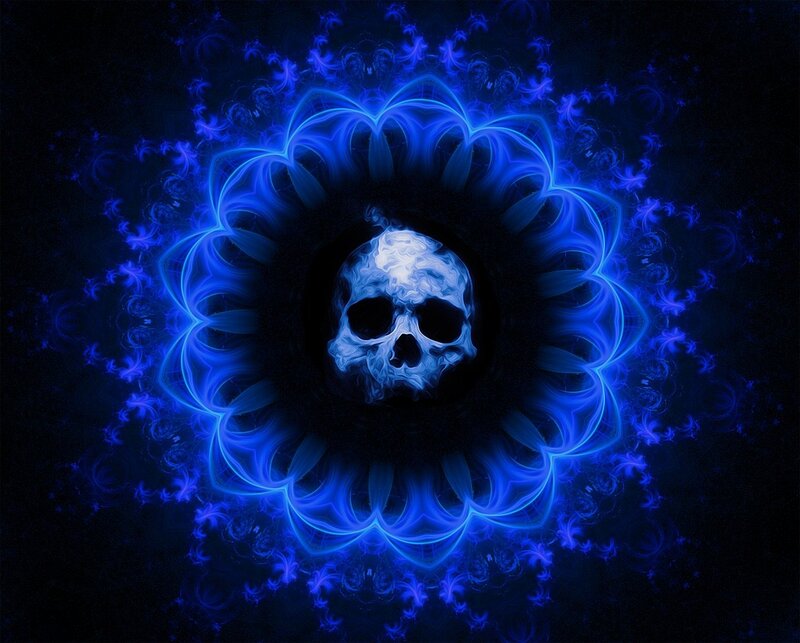
A core belief is not an everyday garden variety belief that pops up spontaneously – it is the mother of all beliefs, the Big Kahuna of suffering, and the King or Queen of your own personal underworld that becomes the central part of your shadow self. This is why shadow work is one of our most recommended methods for exploring our core beliefs.
Often, we are completely unaware of what our core belief/s are (even if we think we are “conscious”!) – and it is quite common to disbelieve their existence.
As I mentioned at the beginning, discovering your core beliefs will cause you to feel a cocktail of surprising emotions (from grief to disbelief). But whatever the case, the truth is that we all have core beliefs and we’re all manipulated by them.
“But I’m a spiritual person: I’ve dedicated so many years to self-improvement!”
Maybe so. But if you’re still continuing to suffer, chances are that you haven’t done the dirty work of digging through the quagmire of your mind first.
In fact, I once used the same justification to avoid the fact that I struggled with some very real, very problematic core beliefs. Eventually, I learned the hard way. Thanks to the constant re-emergence of toxic guilt and shame I developed due to childhood conditioning, I discovered three main core beliefs about myself: (1) I am bad, (2) I’m not good enough, and (3) I’m an imposter.
I was a little speechless when I discovered these core beliefs! They seemed so familiar, so big and scary – and yet there they were, condensed into simple little sentences that I could imagine a sad and scared little child repeating. (And indeed, they do come from the wounded inner child.)
Here are some other examples of common toxic core beliefs that we carry inside. Pay attention to those that generate feelings of discomfort within you:
- I am irredeemably flawed.
- I am unlovable.
- I am bad.
- I am stupid.
- I am worthless.
- I am a loser.
- I don’t deserve good things.
- I am a failure.
- I am weak.
- I am not enough.
- I don’t matter.
- I am boring.
- I am crazy and unstable.
- I can’t be fixed.
- I always hurt people.
- I always hurt myself.
- I have no hope.
- I am evil/sinful.
- I am unwanted.
- I am invisible.
- I am a mistake.
- I am helpless.
- I am ugly.
- I am shameful.
- I am uninteresting.
- I will die alone.
So, which of the above core beliefs stood out to you?
Keep in mind that the above list only displays a sample of the many possible core beliefs that could exist within you. If you want to use the exact “Belief Deconstruction” method I used to find my top three core beliefs, see the Soul Work Compass Course.
5 Ways to Uncover Your Core Beliefs (the Fundamentals)
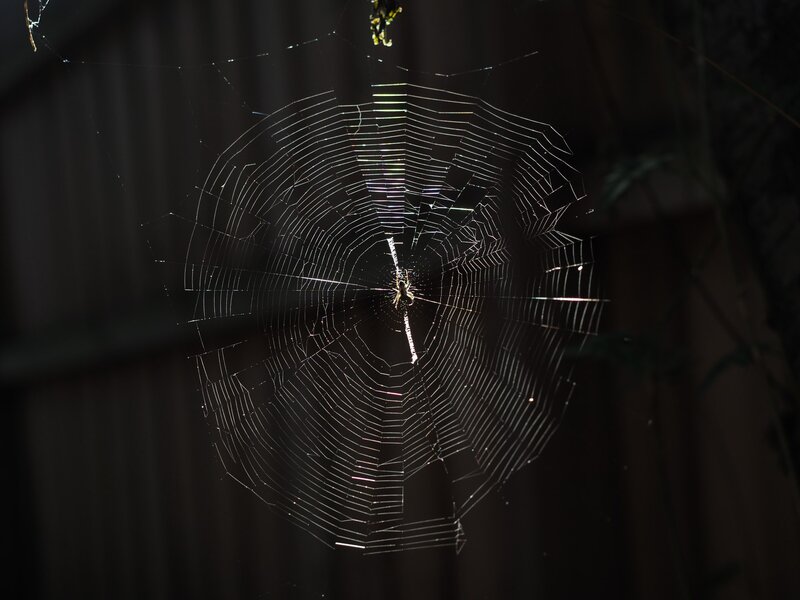
It is vital that you uncover as many of your core beliefs as possible.
Here is what you need to know:
1. They always start with “I am…”
Go and revisit the list of toxic core beliefs above. Can you see how nearly all of the toxic core beliefs start with “I am …” Others start with “I don’t,” “I always,” etc., which tend to sound quite judgmental. Remember that your toxic core beliefs will be in black and white language that condemns you in some way.
2. They are often disguised by supporting beliefs
Yes, these little imps don’t like being spotted. So look out for supporting beliefs that uphold your central core belief/s. Supporting beliefs often sound like the following:
- “She never cared for me” (I am unlovable)
- “He is such a show-off, I can’t stand it” (I am unimportant)
- “They’re always messing everything up” (I am helpless)
- “I’m sorry that I keep making mistakes, I’m a klutz” (I am a failure)
Pay attention to the things that you often say that make you feel a little insecure, self-conscious, or embarrassed. These uncomfortable emotions will help you pinpoint a supporting belief statement that contains a core belief of yours.
3. Practice journaling and try the ‘why?’ technique
Record the thoughts you have about yourself and other people during the day.
For over 12 years, we've poured our hearts into creating free content on this website. Unlike many platforms, we believe this guidance should be accessible to everyone. If this post empowered you in any way, please consider making a donation to keep us going. Any amount (one-time or ongoing) makes a huge difference.
Next to each thought, ask “Why?” and ask the questions, “Why is that so bad?/Why is that so important?” Keep asking these questions until you reach a core answer.
For example, you might write, “I hate how my friend keeps interrupting me.” Why is that so bad? “Because I want to be listened to.” Why? “Because I want to be cared for.” Why? “Because I feel like no one cares about what I have to say.” Why is that so important? “Because I feel alone and worthless.” From this example, we can infer that the core beliefs are “I am worthless” and/or “I am alone.”
We offer a guided approach in the Soul Work Compass Course if you’d like a simpler and more structured approach.
4. Painful emotions are your friends
Uncovering your toxic core beliefs can be invigorating and empowering – but also intimidating and a little scary. Remember that painful emotions are your friends.
When you pay attention to the fluxes and surges of unpleasant emotions from a place of compassion, it helps you uncover your inner blockages. Do you feel anxious, gutted, enraged, self-conscious, insecure, nauseous, or otherwise uncomfortable in your own skin? Good. You know that you’re coming close to unveiling a core belief of yours.
It’s like pulling out a splinter: you’ll feel the pinch of sharp pain first, but that’s a necessary part of the healing process. It all starts with befriending your painful emotions.
5. Practice self-compassion
As you can see, being kind to yourself (self-compassion) is a crucial part of this process. Extracting your toxic core beliefs can backfire if you use the information as an opportunity to bully yourself. Please don’t do that. You didn’t choose to have these toxic core beliefs: they developed as part of your childhood wounding and conditioning.
So be compassionate and go at your own pace – that will make this journey into something nourishing and empowering, not into a witch hunt meant to ‘eradicate’ all of your demons. I help you learn how to befriend yourself through a series of 60+ healing activities and deep-dive prompts in our Self-Love Journal if you need more support.
How to Change Your Toxic Core Beliefs in 9 Steps

As we’ve seen, core beliefs are the fundamental convictions we have about ourselves – the so-called “absolute truths” we have adopted throughout our lives, usually starting in childhood.
For example, if we had an emotionally unstable father as children who constantly punished us and called us “stupid,” it’s likely that we would then develop the core belief that we are “stupid” or “worthless” growing up. Or if we had a neurotic mother who was constantly warning us to “be safe,” we might have developed the belief that “we are not safe,” creating an endless array of psychological problems in our later lives.
Once you have discovered your core beliefs, the next step is to actively replace them. Below, I’ll show you how to change your core beliefs in a relatively straightforward way.
Don’t forget that you can start our Soul Work Compass Course now if you want more structured help in identifying your core beliefs (as well as your core wounds, core needs, and core values – all using the power of spiritual alchemy to empower you).
Keep in mind that any form of inner work demands time, energy, and persistence. But remember, everything you put out is returned to you tenfold!
1. Identify one core belief at a time
It’s pointless to try to rush the process of healing by trying to solve every core belief you’ve identified all at once. Start with the most severe and persistent core belief first. Often, you’ll discover that there is one main core belief that seems to pervade a lot of what you think, feel, and do. Target this one first. The smaller and less persistent core beliefs (i.e., the ones that fluctuate with your mood) can come later.
2. Understand how the core belief impacts your life
To truly motivate yourself to change your core belief, you must genuinely understand its impact on your everyday life and your life at large. Meditate or write down the answer to the following question: “How does this core belief impact my life?” You might respond, for instance, “It stops me from feeling confident. It makes me more anxious in public. It makes me doubt and hate myself. It causes me to lose friendships,” etc. Knowing how your core belief harms you will motivate you to make some serious changes.
3. On a scale of 1 to 10, how much do you believe it?
Often, our core beliefs sound completely ridiculous. To the conscious mind, it’s easy to laugh at them and dismiss them. But on an unconscious level, they still remain within us, wreaking havoc. For this reason, it’s important for you to sit down and really reflect on how much you truly believe in your core belief. Don’t forget to be genuine and tell the truth – this can be hard!
On a scale of 1 (don’t believe at all) to 10 (strongly believe), rate how much conviction you have in your core belief. If your score is above 5, ask yourself, “Why do I believe this is true about myself?” You might like to note down or reflect on past memories or experiences that uphold your belief. If your score is below 5, try to identify any emotions (such as fear) hiding behind your disbelief.
4. Explore hidden forms of resistance
Sometimes people hold a core belief that is very strong. When they are presented with evidence that works against that belief, the new evidence cannot be accepted. It would create a feeling that is extremely uncomfortable, called cognitive dissonance. And because it is so important to protect the core belief, they will rationalize, ignore and even deny anything that doesn’t fit in with the core belief.
– Frantz Omar Fanon
There are many reasons why we consciously or unconsciously refuse to change our old core beliefs. Usually, the reasons involve fear of failure, fear of change, and fear of uncertainty. If we have been habituated to think and behave in a certain way all our lives … what will happen if we don’t anymore? And furthermore, what will happen if we fail? Before you try changing your core beliefs, you need to be able to deeply commit to the journey. By becoming conscious of what is holding you back from changing your core beliefs, you will prevent self-sabotage.
5. Find ways to disprove your core belief
Now that you have rated how much you believe in your core belief, try looking at the “big picture.” By finding ways to disprove your core belief, you will prove to your unconscious mind that you are no longer being positively served by this deeply held conviction.
For example, if your core belief is “I am unwanted,” you might like to deliberately look for ways you have been wanted before, e.g., you might write down “When I was 10, my teachers wanted me to be in charge of the class presentation. When I was 16, someone had a crush on me. When I was 19, my friend got upset with me for not wanting to go with her to the movies. Every year, my relatives want me to come to the Christmas get-together. My partner wants to be with me …” and so forth.
6. Find an alternative core belief
After discounting your core beliefs and proving them to be flawed and unrealistic, it is now time to replace them. Find an alternative core belief that contradicts what you currently believe. For example, if you have the core belief “I am ugly,” you might like to replace it with “I am beautiful.” Or if your core belief is, “I am a loser,” you might replace it with, “I am unique.”
It’s important that you choose a core belief that you genuinely believe in. Beware of going over-the-top with your core belief (e.g., “I am rich and famous”). Instead, try to be realistic and down-to-earth. Affirmations can help in this step.
7. Explore how your life will change with your new belief
How will your new core belief transform your life? Will it help you to be more joyful, confident, creative, or prosperous? Reflect on, or write down your thoughts. Go into as much detail as you like and take pleasure in visualizing the future.
8. If you don’t change your core beliefs, what will be the consequence?
It helps to keep in mind the natural consequences of continuing to cling to a toxic core belief. Not only will this help to motivate and keep you on track, but it will also help to reassert the true value of your journey.
9. Develop a plan of action
After identifying, challenging, and replacing your core belief, you need to have a plan of action in place. Ask yourself what you plan to do in the next month to constantly override your thinking patterns that are associated with your negative core belief.
For example, you might plan to remind yourself of three ways you are lovable every time your core belief “I don’t deserve to be loved” pops up. Some other ideas include:
- Keeping a journal where you record your progress
- Setting aside time every day in solitude to introspect
- Looking at yourself in the mirror every morning, repeating your new healthy core belief sincerely
- Visualizing/hypnotizing yourself into a suggestible state that prepares your unconscious mind for change
The possibilities are limitless. And remember that it’s normal to slip up or forget – just be gentle with yourself and keep persisting!
If you’re looking for a place to start, I recommend exploring mirror work and coupling this with an empowering affirmation (see step 6 above again).
A Simple, Structured, and Powerful Way of Finding Your Core Beliefs
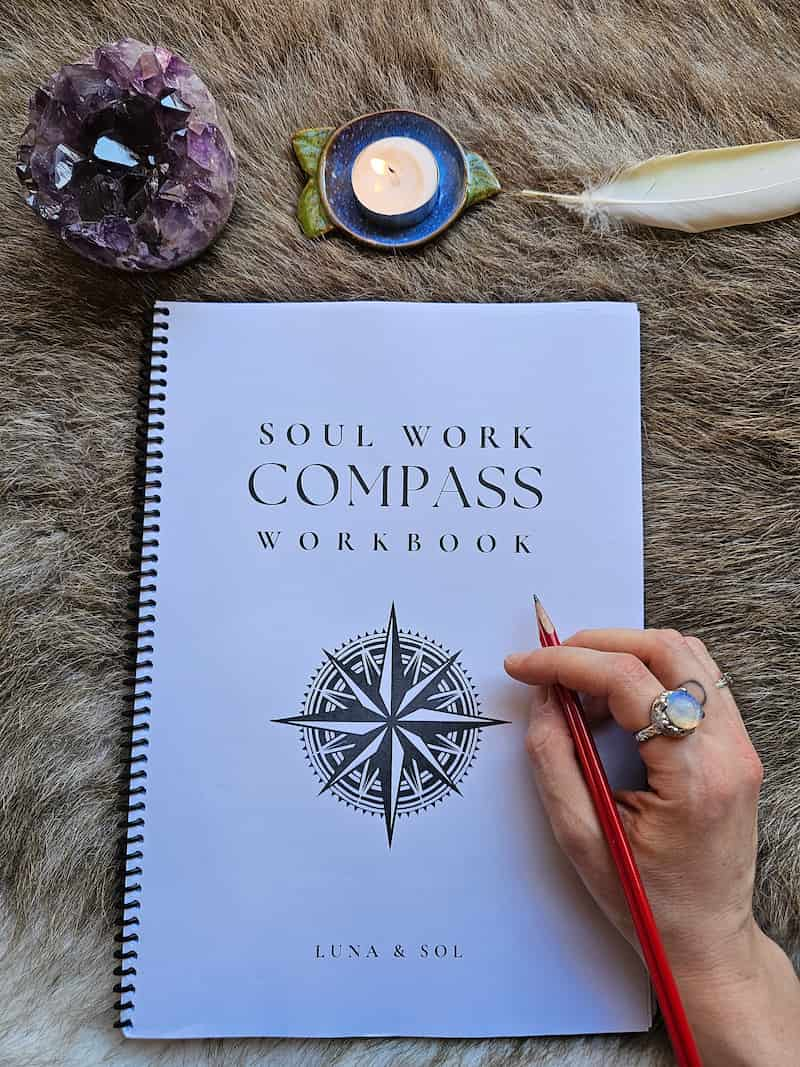
Reading about toxic core beliefs is one thing. Actually finding yours – and doing something about them – is another. That’s exactly what the Soul Work Compass Course was created for.
Using the timeless framework of alchemy, this 12-lesson journey guides you step by step through identifying your core wounds, deconstructing the limiting beliefs keeping you stuck, clarifying your non-negotiable values, and – most powerfully – authoring new beliefs that actually reflect who you are at a soul level.
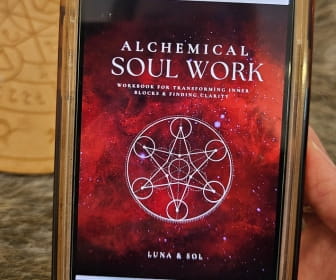
Struggling with inner blockages?
Learn how to transform your confusion into clarity. With 50+ deep dive prompts, your journey of self-discovery awaits in our Alchemical Soul Work Workbook.
You’ll walk away with your own personal Soul Compass: a tangible, fillable document that becomes your north star for making aligned decisions and living with genuine authenticity.
This isn’t surface-level self-help. It’s the deep, structured inner work that transforms repetitive cycles of pain into a life of real meaning and direction. If you’re ready to stop surviving and start living from your truth, the Soul Work Compass Course is where that journey begins.
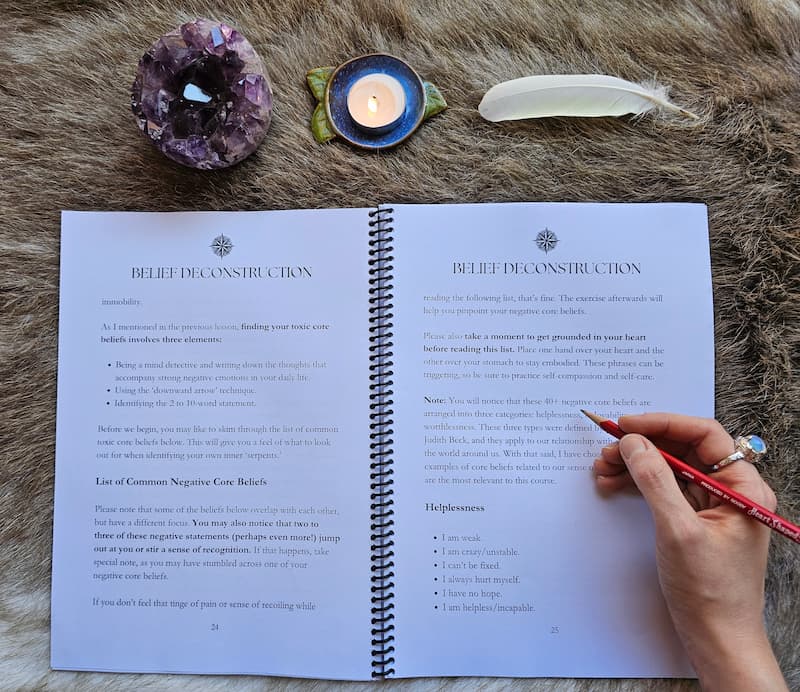
***
As you walk the challenging, but deeply fulfilling path of uncovering your core beliefs, remember that some core beliefs are more persistent than others.
It’s common for some core beliefs to fluctuate with your emotions (pay attention to these), but also look out for those that emerge even when you aren’t feeling emotional (these are often the deeper, more serious core beliefs).
Replacing your core beliefs will take time and effort, but the rewards are endless and priceless. Increased self-esteem, creativity, productivity, prosperity, joy, fulfillment, and love are some of the many gifts you will receive throughout this journey.
Tell me, have you discovered any of your core beliefs? What are they? Feel free to share below. And also, if you benefited from this article, please share it with a loved one!
Whenever you feel the call, there are 2 ways I can help you:
1. The Soul Work Compass Course: Ready for deep transformation without the fluff? The Soul Work Compass provides a step-by-step path to finding your inner truth and life direction. Heal core wounds, clarify your values, and walk away with a concrete guide for living. Get started now!
2. The Inner Work Journal Bundle: Stop surface-level healing. Dive into the depths with 150+ journaling prompts designed to help you face your demons, heal childhood wounds, and embrace your shadow. Three sacred journals, lifetime access, print as many times as you need. Real transformation starts here.

 $3
$3
So few people understand this. I nearly destroyed myself trying to be above what I was instead of healing it. Thank you for being a voice of reason in a nonsensical world.
Last night I was dwelling on a thought that I just couldn’t get my mind off of, and so I started writing it out. I ended up chipping away at it, trying to find what the underlying belief was that was bringing this up, and ended up at “the world doesn’t care about me.” It was very painful, and I ended up writing next to it, “I have to take care of myself.” And it was still extraordinarily painful, but I felt this simultaneous relief or something. It felt like something just shifted.
Hello again Aletheia,
I am studying to become an energetic therapist on the College of Humanities in Utrecht, the Netherlands. I’ve discovered my ability to take someone’s pain away and can feel their entire body and all the energies around me. I can also see all those energies and the very frequency of matter. Every step I take I grow my inner self and gain more knowledge about myself and my environment, all my abilities expand and become stronger with them. I can do things now I couldn’t do 2 months ago.
But there is a great dis-balance within me. It has been there for as long as I can remember and my body has been pointing it out to me for as long as that. My upper body is always as hot as a stove while my lower body (below the hip) is as cold as ice. Other students have felt me and all say the same. I feel that this is my core belief(s). I quite often dream up situations where I become the hero who saves everyone from terrible people. Why? Because I want to be recognized. Why do I want to be recognized? Because I feel alone, because there is no one like me.
On the train home me and a girlfriend ran into a person who was very judgmental and aggressive with it – especially on outsiders like her and me. She was able to shrub it off and ignore him but I really couldn’t and this has laid bare something about me. Why did I care what he said about us? Because I don’t want to be on people’s bad side? Because I want to be recognized? I felt alone in those moments and now I think I’ve uncovered a deep core belief; I am alone and am afraid I always will be.
Do you have suggestions on how to deal with this?
After reading your article on vulnerability I realized that I am always guarded and uphold a separate detached personality that shields me from getting hurt. I digged deep and I think this is because I think I am worthless, ugly and unwanted. And I felt this way since middle school. I am working on building my self love so I can be more open and vulnerable but still know deep in my heart I have my core values and that I am worthy!
I can recommend something very simple that I’ve found really helpful – and also cheers me up when I’m feeling a bit down – I signed up to something called Inner Pilot Light – you receive a daily email from your higher self/soul each day telling you what it could tell you if you were better connected with it. Maybe give it a try – I really like it and it’s a good reminder that we are all perfect just as we are. It may be called the Daily Flame.
honestly, those statements, i think all but maybe 5 of them about myself. and i can’t seem to get to the bottom of them. they just ARE.
It can be very hard at first to get to the bottom of your core beliefs at first, but YOU must be willing to do the hard work. Without dedicating some serious time to reflection and self-inquiry, you will continue to suffer from impacts of your core beliefs for the rest of your life. Sad, but true. If you need more guidance, I recently wrote this follow up article: https://lonerwolf.com/how-to-change-your-core-beliefs/
I can’t really read those example core beliefs without my eyes welling up with tears. I literally stop reading just to make sure I don’t cry.
Please tell me that doesn’t mean a lot of those are my core beliefs cause I have some thoughts that would be core beliefs that aren’t even on that list. That’s a lot of horrible core beliefs if the fact that I can’t read it means that a lot of them are core beliefs.
So. . . yeah.
I think you already know the answer for yourself Stefenie. Having such a strong response like that means that you have many core beliefs that you need to explore. It is hard and daunting, but it will be worth it and your life will be the better for it.
Okay so I was relooking at the list but this time I didn’t really have much of a reaction. I wasn’t nonchalant about it but yeah.
Are some of them still core beliefs or not? Can that change?
(I read your response to my first comment and guessed that some of them must be core beliefs by the way.)
The first time you lay your eyes on something there will be a shock. The second time it is natural to not feel anything. I’d really encourage you to pay attention to discovering and healing your core beliefs. If you want a bit more guidance, see this article: https://lonerwolf.com/how-to-change-your-core-beliefs/
Ohhh okay.
This same thing happened to me when I read the list. It’s like Aletheia was reading my mind when she wrote those beliefs down. All my core beliefs can be summed up by the phrase, “You always do wrong.” It’s what my ex-husband told me one day in 2012, when we were cooking and he got mad at me for not handing him an ingredient fast enough. :-(
I can’t but secretly hate and love Lonerwolf.The gap between me and people my age is enormous since I found Lonerwolf,in my perspective.
I had always been afraid of not having a like minded person,and can feel sometimes that I am to old for my age.When i was a little girl i was always categoried as the mature one and the perfect example for my peers.I always felt anger towards the people who would say that.And that was a lot of people and they still do it today. To day I have to a certain level accepted that I will have to live with it. But my anxiety for being alone and not gonna find someone is haunting me.I somewhat regret reading your articles from the age of thirteen,but at the same time I can’t but disagree.
I wouldn’t be the person I am,four years later. I wouldn’t be so strong and confident with myself as a growing and learning person. I still feel disconnected with many of my age,and can’t but dream of what my school would look and feel like if everyone found your articles.
Always grateful
Moa
Haha, I’ve very rarely heard another reader comment that they have a love/hate affair with LonerWolf. But it is an honor to impact your life for such a long period of time.
The path of self-growth, acceptance, love and maturity always starts with the recognition of our “separation” from others. And ironically, everyone feels this way, no matter what their soul age is, what their beliefs are or what values they have. We all feel that sense of separation, and it is a separation that is essentially illusory: it doesn’t exist, only in our minds. Eventually, with enough work you will come to see that you aren’t as different or separate as you think.
;)
I have been going through a rough time lately. I started working on my core beliefs and one that came to me was that I’m stupid. This has been one of my greatest fears and an area I have worked so hard to hide all my life! After I dropped out of RN school, it has been really working on me 24/7. I would just brush it off, thinking that so many people fail out of the RN program. However, the nagging fear that I am stupid never left! Now it seems obvious, and painfully so! I was so quiet in school when I was young, I barely spoke! They did so much testing on me to find out what was wrong with me. I spent a lot of time with the school psychologist, in the resource room. I had an IEP. I eventually started doing well in school, graduated from high school with high grades, and graduated from college with a bachelor’s degree cum laude. I was a late bloomer, is all it was, I would tell myself. Maybe I has undiagnosed asperger’s, I thought. Yet, when I eventually went into nursing school, I started having a terrible fear of failing. I had to drop out due to the anxiety I had. I was afraid to go to clinical, I was sure I would kill my patients with my incompetence! Still, I brushed this off. How could I believe I was stupid? It was laughable. After all, I had a degree and was an avid reader. Well, I was lying in bed, thinking and oh my god! It hit me! I did believe I was stupid! It became obvious to me right then and there, how I always feel the need to prove I am not stupid, make excuses for things I get wrong, and hesitate to speak up. I am so uncomfortable around smart people, yet I could never acknowledge this. I have other core beliefs as well. I am still working on uncovering them.
Thank you so much for sharing Kristin. It’s liberating finally realizing what has been driving a lot of our behavior, isn’t it? At last we can gain a deep insight into our choices, feelings and thoughts and at last we have the opportunity to work through these core beliefs, replacing them and healing ourselves in the process.
Although it is a hard process, it will also be exciting to discover the other core beliefs you have for it provides the opportunity to find greater peace in your life.
Best wishes
x
You have made a very good start. I know that I have something similar – I was always the best at metalwork at school – but when I got myself into the top jewellery school in the country – I could not reconcile the huge talents of my colleagues which did not reflect in their appearance! And so I lost confidence and could not regain my abilities – which changed my life completely. I thought that I was a failure at what I wanted to be best at. That is still with me many years later but I have never visited this before nor written it down.
Thank you for sharing your experience! I hadn’t realized that this belief might be a possibility for me until I read your words!
Thank you. Time to take the pick Axe to the mind heart & soul <3
It won’t be pretty, but it will be worth it Erin. ;)
Do core beliefs begin in childhood? I think mine did. Then when I got older I chose relationships that reinforced my beliefs. It’s hard to understand why I would purposely choose people who would say the exact same awful things to me that I secretly feared were true.
Yes Karin. In fact most deep-seated core beliefs start in childhood. There is a certain comfort we gain in our misery. If we have been told something about ourselves for our whole lives then we start to build this idea about ourselves that we are “victims” or “ugly” or “stupid” or whatever other harsh criticism is used against us. Soon that is all we come to believe about ourselves, and anything or anyone that challenges these beliefs is seen on an unconscious level as a threat. It is uncomfortable to have our whole self-perception and self-image threatened and shattered. Sometimes choosing partners who repeat our parents behaviors is a sickly way of reinstating that sense of toxic “safety.” We also tend to gravitate towards what we “feel we deserve.”